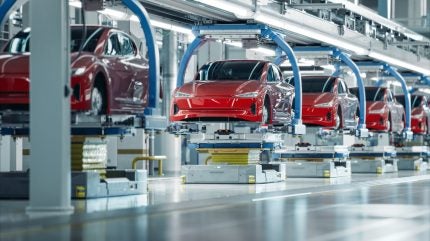
The European Union and China agreed for further technical talks on potential alternatives to tariffs on electric vehicles manufactured in China.
The EU is poised to impose tariffs of up to 35.3% on Chinese-manufactured EVs following an anti-subsidy investigation, reported Reuters.

Discover B2B Marketing That Performs
Combine business intelligence and editorial excellence to reach engaged professionals across 36 leading media platforms.
These discussions aim to examine options such as minimum price commitments from Chinese producers or investments in Europe, which could serve as substitutes for the impending tariffs.
The European Commission, after a video conference between EU trade chief Valdis Dombrovskis and Chinese Minister of Commerce Wang Wentao, stated: “The principals agreed that further technical negotiations would take place shortly.”
Although the European Commission, responsible for trade policy within the 27-member EU, has engaged in eight rounds of technical talks with Chinese officials, it states that “significant remaining gaps” persist.
China has expressed its readiness to host the EU team, and clarified the continuation of price commitments as the dispute’s resolution.
Both Dombrovskis and Wang confirmed their commitment to finding a mutually acceptable solution, ensuring fair competition in the EU market and adherence to World Trade Organization (WTO) regulations, reported the media outlet.
According to Wang’s ministry, the next phase of discussions should include the establishment of a bilateral communication mechanism to implement and regulate price commitments.
China has previously urged the EU to avoid holding separate negotiations with companies, as it could undermine the negotiation foundation.
However, the Commission clarified that discussions with the China Chamber of Commerce for Import and Export of Machinery and Electronic Products (CCCME) do not preclude talks with individual exporters.
Dombrovskis also voiced concerns regarding China’s investigations into EU brandy, pork, and dairy, deeming them “unsubstantiated”. In response, China affirmed the continuation of its investigations, asserting compliance with both Chinese law and WTO rules.






